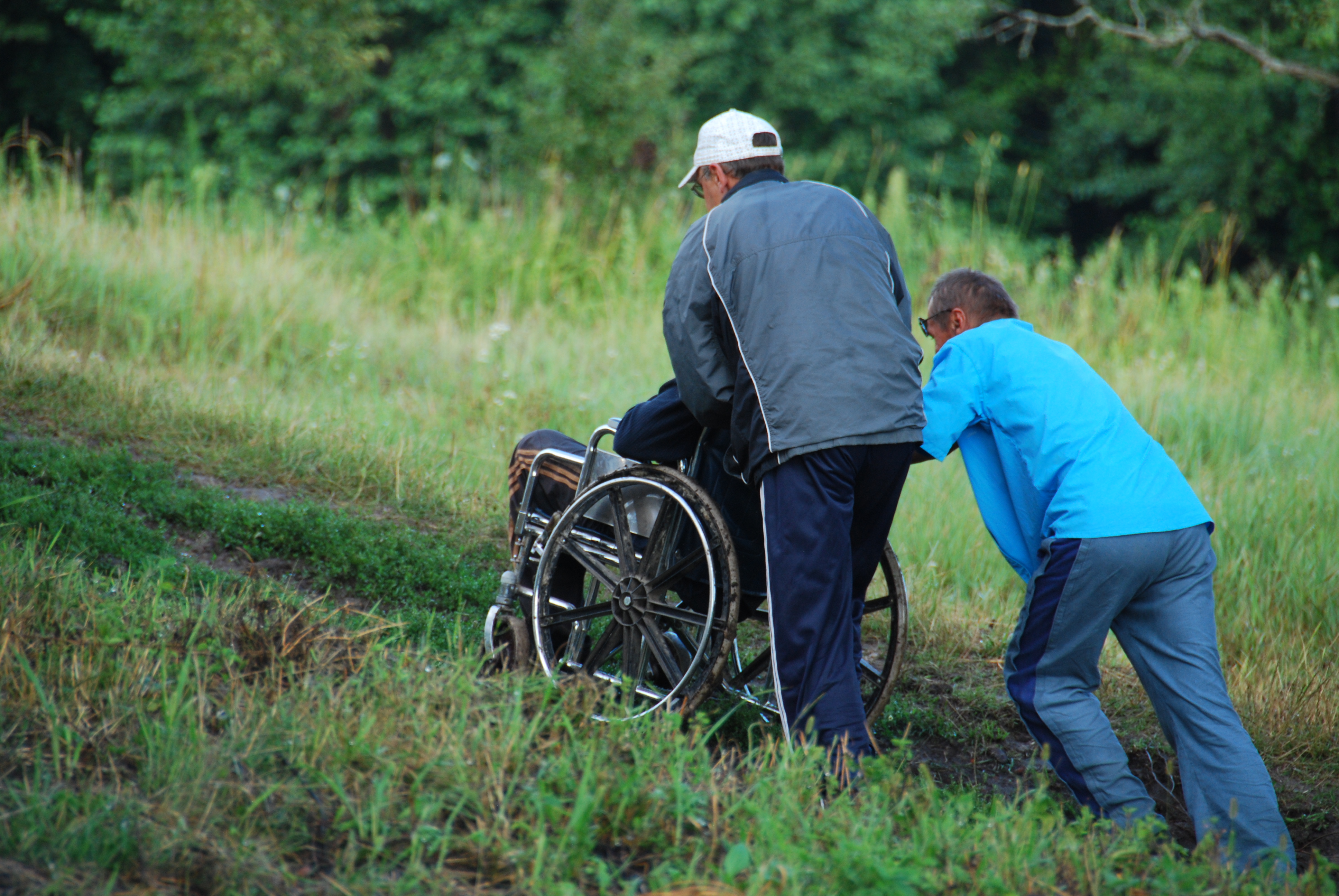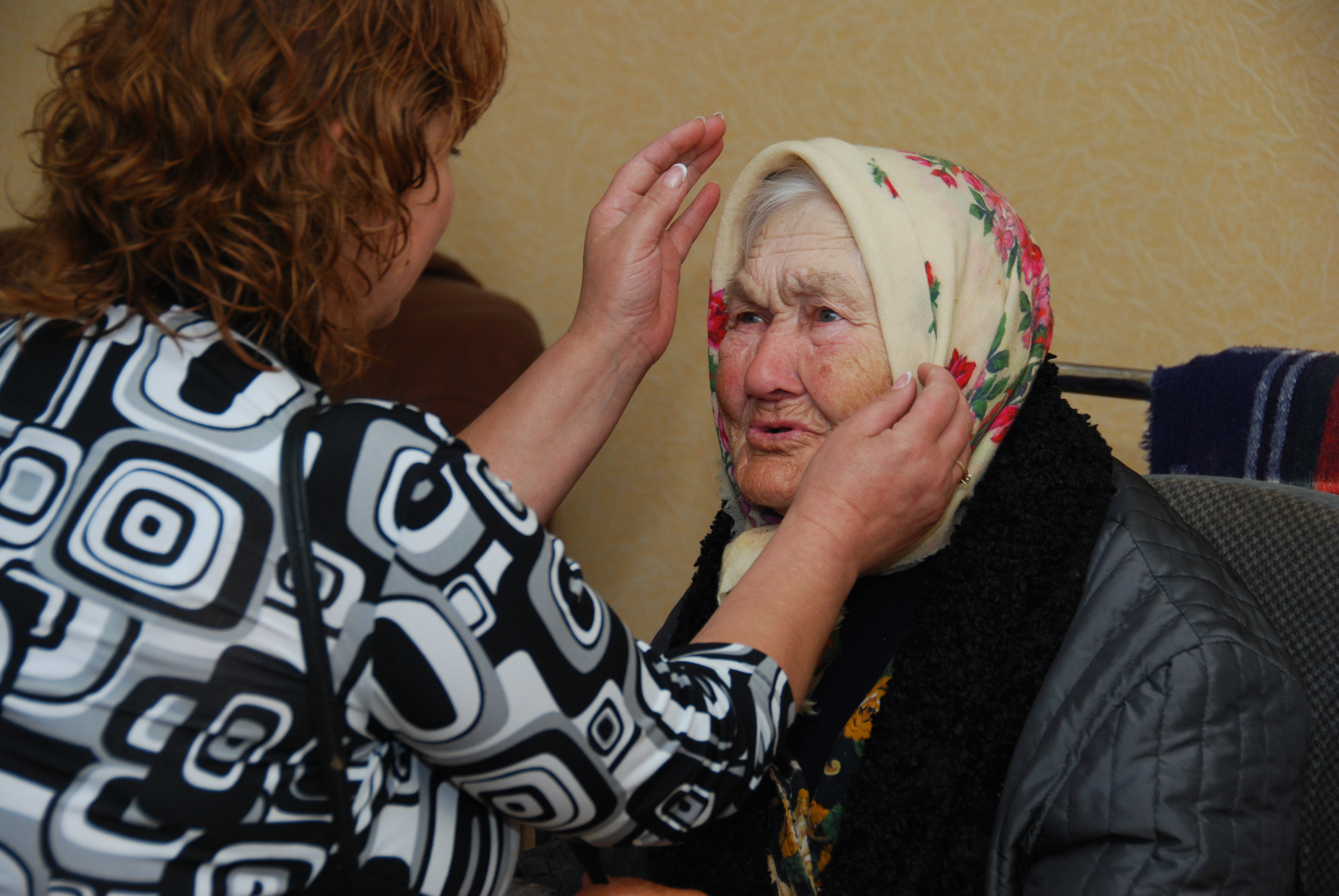A lawyer stood up to put him to the test. “Rabbi, what shall I do to inherit eternal life?”
“What is written in the law? How do you read it?”
“You shall love the LORD your God with all your heart and with all your soul and with all your strength and with all your mind, and your neighbor as yourself.”
“You have answered correctly. Do this, and you will live.”
But desiring to justify himself, the lawyer said to Jesus, “Who is my neighbor?”
Jesus replied, “A man was going down from Jerusalem to Jericho. He fell among robbers, who stripped him, beat him and departed, leaving him half dead.
“Now by chance a priest was going down that road, and when he saw him he passed by on the other side. Likewise a Levite, when he came to the place and saw him, passed by on the other side.
“But a Samaritan, as he journeyed, came to where he was. When he saw him, he had compassion. He went to him and bound up his wounds, pouring oil and wine. Then he set him on his own animal and brought him to an inn and took care of him. The next day he took out two days wages and gave them to the innkeeper, saying, ‘Take care of him. Whatever more you spend, I will repay you when I come back.’
“Which of these three, do you think, proved to be a neighbor to the man who fell among the robbers?”
He said, “The one who showed him mercy.” Jesus said to him, “You go, and do likewise.” Luke 10:25-37
A lawyer. A supposed expert in every jot and tittle, parsing every nuance and phrase, jousting in arguments, with two keen objectives: judging others, and justifying oneself.
The lawyer “stood up” and challenges Jesus. “What shall I do to inherit eternal life?”
Jesus answers the question with a question – “What is written in the law?” If anyone is prepared for this, it should be the lawyer. And even better, “How do you read it?” What is your personal, subjective, relativistic understanding? Now the field is wide open. The lawyer need not identify only what is written, which he should easily be able to do, but he is invited to give his personal opinion.
How quickly the table is turned. The one who was to give the test is now being tested, without perceiving the immediate reversal. He gives the right answer, and in so doing indicts himself. He invokes the greatest commandment, of loving the LORD with the whole of oneself, and the second like it, of loving one’s neighbor as oneself.
Jesus, the one who was to be tested, gives his grade, an A+, a correct answer. “Do this, and you will live.”
Suddenly, the lawyer gets it. He was supposed to be on the offensive, but now, standing in front of the crowd, he is exposed. Because “doing this” he is not. In his secret heart of hearts, he knows this.
Desiring to justify himself, the lawyer says to Jesus, “Who is my neighbor?” May the standards be low enough so that I have demonstrably met them.

Jesus answers with a story. A priest and a Levite pass by “on the other side.” They go out of their way. It’s all about proximity. Far enough away and it’s not their problem. No risk of neighborliness here. And therefore, no risk of breaking the law by failing to get involved.
“But a Samaritan … .” “But” is an alerting word in scripture. Samaritans were despised. The prejudice and hostility against them ran deep.
This difference between this Samaritan on the one hand, and the Priest and Levite on the other, is in their heart which shows up in their immediate response. The Priest and Levite respond with avoidance. Their reaction comes from of a heart of maintaining outward cleanliness, and to an observer, propriety, without coming within the zone of obligation.
The Samaritan’s heart is compassion. His first instinct is to go toward the injured man, not away, like those first responders who race in to the burning building and up the stairs, running against the traffic of those understandably fleeing. His is a different mindset. The delay, the inconvenience, the cost, the contact with blood and mess, these are factors, but they yield to the first response of compassion. His empathy and sympathy trump all the reasons not to get involved.
He binds up the victim’s wounds. He gets his hands dirty. Oil and wine, where did these come from in this desolate place? He must have been carrying them, and probably not for a purpose such as this. An animal, a resource for managing a load to be carried a distance, is now drafted in to a different service. Cash money. Time. An intention to return. These are all redeployed to this new purpose.
The priest and Levite went out of their way to avoid being obligated. This Samaritan went way out of his way to help.
Jesus restates the lawyer’s second question. Essentially, wrong question, says Jesus. Wrong “who.” The question is not “who” is my neighbor. The question is “who proved to be a neighbor?” The question is not, who is close enough to me, in my “neighborhood,” where I have some obligation to help. That is far too narrow. The question is, to whom will I prove to be a neighbor? Near or far? If I ignore those near, I am no neighbor, no matter how close. If I respond at personal cost with compassion to those no matter how far, I prove myself to be a neighbor.
Jesus is looking not for those who check boxes of obligation, but for those who respond with a heart of compassion to become a neighbor. To close proximity gaps, not use them as an excuse.
My reaction to this story is to come under self-condemnation, for not being a better neighbor. That misses the point, as much as the lawyer who sought to justify himself. Both are focused on meeting minimum obligations.
Jesus is inviting me to so much more. To live with an abandonment of self concern and preservation, to give in to compassion, to be free to “go out of one’s way,” to pay time, treasure, convenience, and even sanitation.
 There is joy in this response. To spend resources where they really matter. What satisfaction it is for resources to be tools, rather than their collection to be an end in itself.
There is joy in this response. To spend resources where they really matter. What satisfaction it is for resources to be tools, rather than their collection to be an end in itself.
So, the real question, the final exam, is not what must I do, but who will I be?

Wow Duane!! Talk about a lesson on living beyond oneself!
Beautifully written, Dwayne.
One could almost get the sense that Jesus had read St James and ignored Luther’s misunderstanding of St Paul 🙂
To read the Gospel is to understand the primacy of orthopraxy over orthodoxy, or at least its cruciality in an authentic Christian life. Samaritans dont get any credit from the “orthodox” southerners for setting up their own “mecca”, despite the fact that they worship the same LORD. But how embarrassing that the orthodox dont seem to understand the ethical implications of their faith, according to Jesus, even as they pride themselves as the ones to whom God entrusted His holy law.
Anyway, I think your perspective is pastorally rich, and challenging. Im not sure that we should be too hard on those of us who set out to “check the boxes”. We have been formed in religious traditions that so emphasize “faith” over works, that we are in sore need of discipline and practice. (when I say “we”, I mean “I”). Perhaps a little “catholic guilt” might actually get us to make a start towards, “living with abandonment of self-concern and preservation”?
Thanks for the encouragement to holy action…onwards for the glory of God, alive in Jesus.
blessings,
Jim